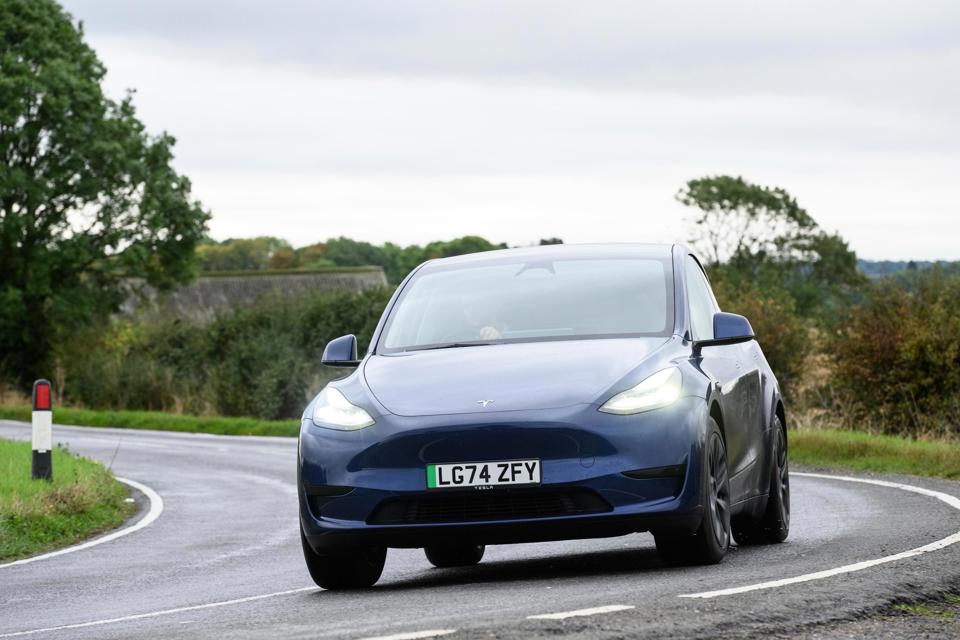The UK’s electric vehicle (EV) market is lagging behind the majority of European countries due to a lack of Government incentives, according to PwC.
Its latest eReadiness study reveals that the UK has fallen from fourth place to 11 out of the 13 different European markets analysed, and is now ranked 17th globally, out of a total sample size of 26 countries.
Part of the drop is down to surges in EV adoption rates in markets like Sweden, the Netherlands, Spain, France and Italy, but it also due its poor score around incentives that has negatively impacted its position in the ranking.
The eReadiness research included 17,000 respondents across 26 countries and measures areas like government incentives, infrastructure, supply and demand. Markets are scored on a scale of one to five, in terms of how “eReady” a country is for the move to EVs.
The UK has lost ground in its overall e-Readiness vs 2023 (-0.2 vs 2023), driven by a decrease in Government incentives (-1.0 since 2023), whereas infrastructure and supply metrics remained the same (2.8 and 2.5 respectively).
Demand for EVs was shown to be increasing slowly in the UK, with this metric increasing by 0.3 to 3.3.

Ownership and satisfaction
The study showed that the UK had a slightly higher proportion of current EV owners vs globally (10% of UK respondents identify as current owners vs 6% at a global level).
The overall satisfaction level among current UK EV owners remained high, up 10% YOY, with approximately 96% expressing satisfaction with their EVs (vs 93% at a global level).
The main contributing factors included a better battery lifetime (57%), recharging time (50%) and driving range (41%).
Among UK EV owners, 70% said they would not switch back to a combustion engine.
Dissatisfaction with EVs among this UK cohort is driven by higher than expected maintenance costs and concerns about range limitations.
Prospects and sceptics
Among UK prospects, who indicated an intention to buy an EV within the next five years, the key elements to consider switching were fuel economy (61%), the convenience of recharging at home (44%), as well as the reduced environmental impact (28%) and driving range (39%).
Price (65%) was an important criteria when purchasing a new EV among UK prospects, alongside safety (50%) and battery range (44%).
In terms of overall EV package, charging solution (54% vs 64% at global level) and duration of warranty (48% vs 52% at global level) were the most important criteria for UK prospects.
Recharging time concerns (54%), uncertainty about battery lifetime (42%), and perceived higher upfront costs vs combustion engine vehicles (37%) were the main barriers for prospects in the UK when considering the purchase of an EV.
Concerns around limited range decreased 7% compared with 2023’s findings, indicating a reduction in range anxiety amongst prospective owners.
However, a little over a quarter of UK respondents were yet to be won over.
Just over a quarter (26%) expressed no interest in buying an EV within the next five years, classed as sceptics, whose key barriers cited included a perceived long recharging time (50%), concerns about limited range (43%), and uncertainty about battery lifetime (39%).
Antoinette K Meehan, director in PwC UK’s automotive practice, said: “The UK’s drop in its eReadiness signals the need for a reassessment of both consumer and Government roles in driving mass EV adoption.
“While automotive brands and dealers have a significant role to play in strengthening their brand position and building trust, especially in the UK, effective collaboration between Government, manufacturers and infrastructure providers is essential.
“Recognising that the experience of buying, owning and driving an electric vehicle is significantly different to that of combustion engine vehicles, means creating the right economic and environmental factors that will foster confident, mass-market ownership.”





















Login to comment
Comments
No comments have been made yet.